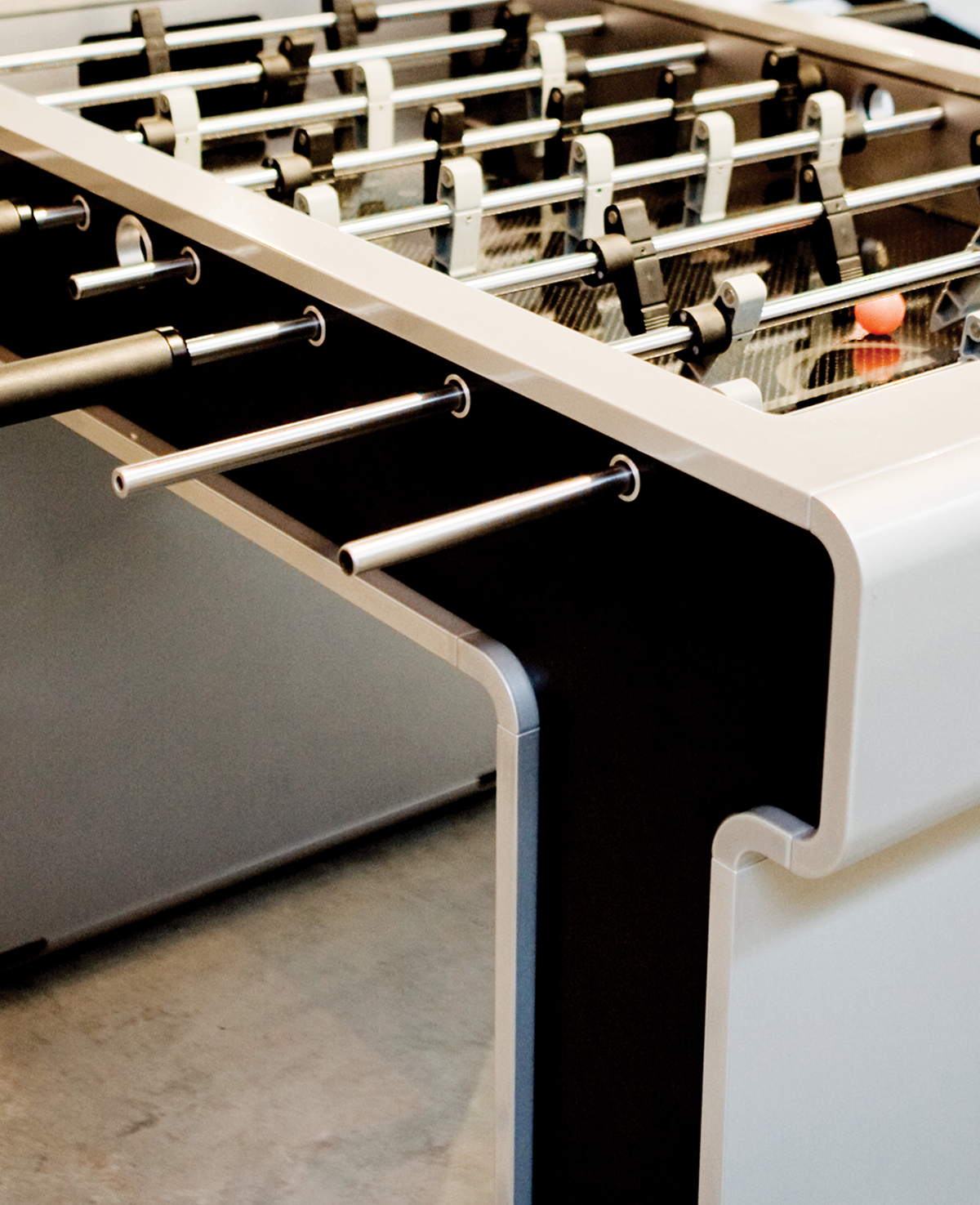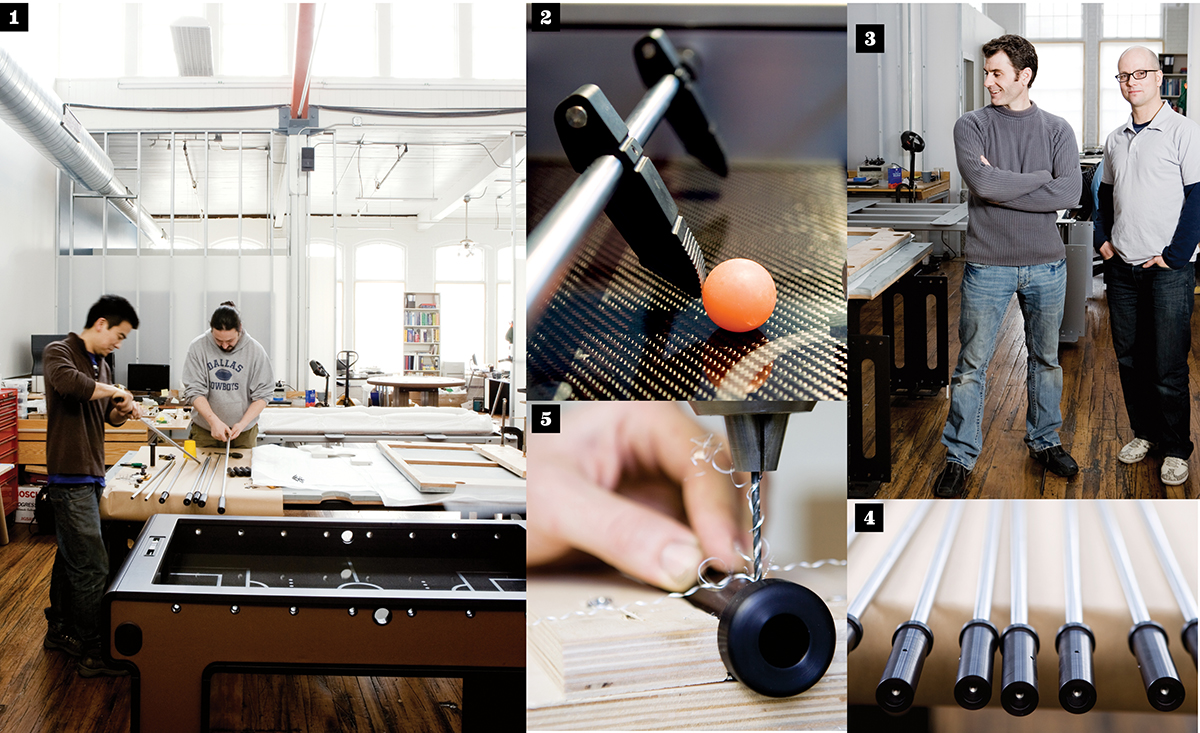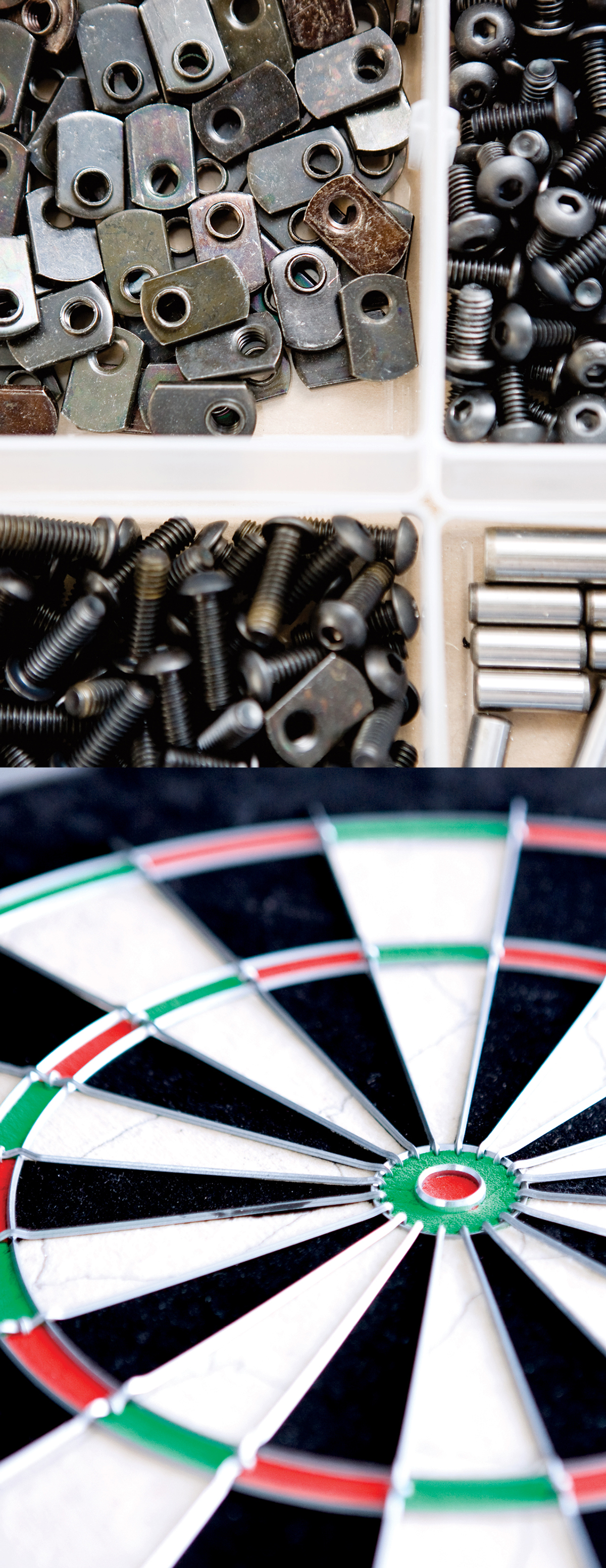More than a Game

Custom-built foosball tables, pool tables, and dartboards are on display in Mars Made’s South End showroom.
IN THE WORST ECONOMY IN DECADES, you’d be crazy to launch a company offering $35,000 handmade game tables. But Mars Made founders Andy Marsella and Justin Sirotin — of Boston and Providence, Rhode Island, respectively — actually seem pretty sane. They left their jobs to design and build high-end tables five years ago and “didn’t feel [the recession] because we didn’t have a product to sell,” Sirotin says.
That would change within a year of starting out, as the duo applied their experience in product development to designing, sourcing, and building a fantastical suite of game-room equipment. Rimmed in brushed aluminum, one pool table sits on enormous concrete piers that can be tinted to match your room’s color scheme; a dartboard on the wall is inlaid with Spanish cork and veiled by a sliding panel of frosted tempered glass. Each piece is made to order with custom materials and colors on every visible surface. “What appealed to us was the opportunity to explore a niche that combined modern design…with something that was a lot of fun and not readily available,” says Marsella.

1 Artisans attach anodized aluminum handles, made in Middleborough, to steel foosball rods. 2 The tables feature polished carbon-fiber panels. 3 Founders Andy Marsella and Justin Sirotin wrap up another day in their 19th-century Pawtucket mill turned factory. 4 Foosball rods await their rubber grips. 5 Every hole is carefully drilled by hand using custom-built guides.
Sirotin, trained in industrial design, teaches manufacturing at the Rhode Island School of Design, while Marsella is a mechanical engineer with a specialty in medical devices. They share an obsession for materials, from worsted wool to Baltic birch to aircraft aluminum. “In terms of positioning the company [at the high end],” Marsella explains, “part of that was to allow us…to play with nontraditional materials and explore our fantasies of what these tables could be.”
A traditional pool table’s playing surface is normally made of a 600-pound slab of slate supported by a massive wooden base. “By replacing all the wood with steel,” Sirotin says, “we can completely change the way the product looks.” The result: “a very low profile and a very [large] span.”
When I arrive at the factory in a restored Pawtucket, Rhode Island, mill called Hope Artiste Village, Sirotin is asking a colleague to pick up pool-table pocket inserts from a boatbuilding firm. “They’re made from carbon fiber, so they’re specialty composites,” he explains. “We buy the stuff — we design it and work with them to create the tooling, and then they actually lay out the part for us.” Although some materials are sourced from afar, many come from Massachusetts vendors, who, Marsella says, enjoy the novelty of working on “highly cosmetic finishes.”

Above, trays of T-nuts, stainless steel pins, and bolts for fabricating the foosball tables. Below, a finished dartboard is mounted in a generous square of fine-grain Spanish cork and inlaid with stainless steel.
The artisans, all of whom have design degrees, finish components at the factory and then assemble tables in customers’ homes nationwide; Marsella and Sirotin travel to each installation, as well. Most buyers have never seen, much less tried, the piece they order. “I’d call them design enthusiasts before I’d call them game enthusiasts,” says Sirotin. “People want to see photos of it during the process. They touch base every couple of weeks…and then once the product is in, we get phone calls and e-mails saying they love it.”
Mars Made sells primarily online, but maintains a South End showroom in which companies or sports fans can host parties. While the wares might seem like the ultimate man-cave adornments, most are sold to couples — often with a woman driving the customization. With the exception of a few dartboards, Sirotin says, “We have never made the same product twice.”